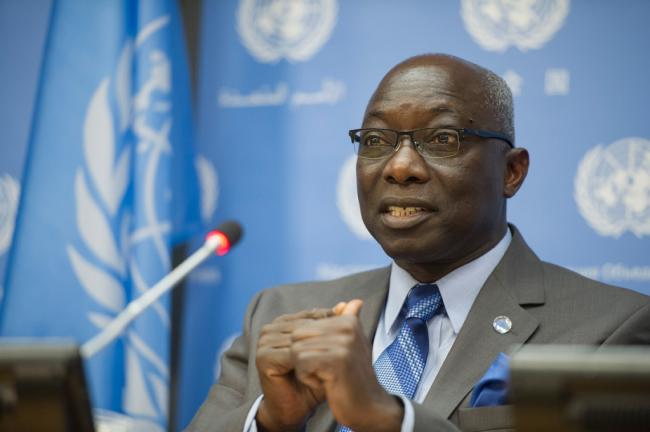26 Apr 2015

The 'Forum on the Role of Religious Leaders in Preventing Incitement that could Lead to Atrocity Crimes' was organized by the United Nations Office on Genocide Prevention and the Responsibility to Protect, the King Abdullah Bin Abdulaziz International Centre for Interreligious and Intercultural Dialogue, the Interministerial Delegation for Human Rights and Rabita Mohammadia of Ulama of Morocco, and the plan of action focused on eight major areas for consideration.
It called for monitoring of incitement, the development of alternative messages, engagement in dialogue, efforts to develop and revise education to include better mainstreaming of appreciation of all cultures, engaging in and strengthening inter-religious and intra-religious dialogue and activities to ensure understanding, respect and communication, engaging in dialogue on grievances, strengthening clarity of message and engaging with political leaders.
Adama Dieng, UN Special Advisor on the Prevention of Genocide, spoke to UN Radio about the discussion, saying that agreement on the draft came with the knowledge that the final outcome would need to balance different views on freedom of expression and the need to prevent incitement.
“Of course, from a human rights perspective, I am a very strong supporter of freedom of expression,” Dieng said.